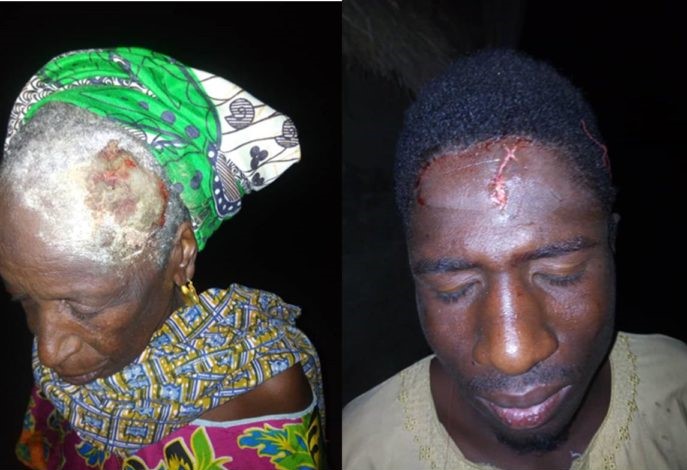
Part One
The learning and relearning of human dignity should form part of our daily conversation and orientation in the Gambia. However, the fundamentals of human dignity shall be part of human rights discourse at all levels. Human dignity should not be a conversation stopper but an inspiration for dialogue. It should also be a project under construction which reflects human collective awareness of our own fragility in the face of new challenge posed by society and technology.
So very disturbing! Caste discrimination is a chronic human rights condition, which involve massive violations of civil, political, economic, social and cultural rights, along on patriarchal line, are one of the banes of the government of President Adama Barrow.
Caste-based discrimination will persist until the use of torture is properly outlawed in the Gambia. The National Assembly must enact into law on torture with an eye to bringing it into line with the provisions of the Convention against Torture and Other Cruel, Inhuman and Degrading Treatment or Punishment.
It will also be necessary to set in place new institutional measures to this age-old stupid belief over caste and domestic slavery. The caste-based discrimination is a self-imposed belief system, and any justification produces bloated bigots and puny humans.
Caste systems are considered “lesser human beings”, “impure” and thus “polluting” to other caste groups. Caste-affected communities are subjected to so-called “untouchability practices” in both public and private spheres, and are often forcibly assigned the most dirty, menial and hazardous jobs, such as cleaning human waste.
The exclusion of caste-affected communities by other groups in society lead to high level of poverty among affected population groups and exclusion from development processes, and generally preludes their involvement in decision-making and meaningful participation in public and civil life.
This government’s hubris and lack of political will to combat and criminalize violence against caste-based discrimination and slavery in certain communities and communal violence in the Gambia will be its doom; its self-important cartons of bigoted domestic slavery, caste system, ethnic superiority and male chauvinism smell nemesis. The Nazis had it in their master-race (Herrenrasse), master people (Herrenvolk) and master human (Herrenmenschen) actions and rhetoric, but in the end, what came out of that adventure? Maybe it is even useless using history to warn the present.
The government confirmed lack of political will and everyone wondered why all the noise about the pitfalls of national consciousness and identity crisis, what it did. Even the government’s most conscienceless defenders were stung speechless. When the whole village says you are a suspected thief, you don’t go about fiddling with lambs that aren’t yours. When your label reads ‘owner of abnormal intestines’, the sensible thing to do is for you to pack well your entrails.
Let’s dissect this situation of this caste-based discrimination and slavery discovered in the Gambia. It’s really about identity shifts, which I could classify in three parts. Identity amputation (discarding a part of who you are); identity replacement (replacing a part of who you are with something else); and identity reconstruction (transforming a part of who you are).
It has to come from YOU. It has to be your journey, inspired by your encounters, your growing, your self-search… Forcing identity shifts on anybody (caste, ethnicity, name, religion, etc.) is always deeply traumatic. It happens on large scales such as slavery and colonization, and it also happens on the micro-scales of personal relationships. The effect is the same – decimation, from which the victim(s) have to heal awkwardly.
It is time now to rise up to fight against the same colonial scourge of demanding to be in charge of someone else’s identity. One must be proud of oneself. Caste-based people have struggle the most with force-fitted identities. Identity transformation happens every day and, it is very traumatic.
The rot of casteism and slavery is not with the people; it’s systemic. It is solidly institutionalized so that anyone who gains access to power can choose to use it. The Gambian power system is like a kitchen with a sewage system that spews out its filth into the pipes that are controlled by politicians so that the food cooked in it poisons all its consumers.
The rot of casteism and slavery is a glut of selfishness, insatiable greed, impunity and a deep dark fear that there will never be enough for everyone. It suppresses human kindness and makes for a perfect mushrooming of endless schemes against the weaker person.
The rot of casteism is not erased by footprints of bold infrastructure that earn us the middle-income country label, because right beneath all the brick and mortar are mounds of humanity wiggling like maggots on a carcass of poverty.
The rot of casteism is resilient, stamped into the country’s fractured birthing, and spews out constantly to poison and deny people peace of mind. In the past few days, this rot broke its banks, and time will tell how many victims will drown before the flood is contained.
No matter how piously we pray, nothing will change until we act, and we will always suffer the effects of the rot, regardless of what ethnicity or social class you belong to. Some are staggering in drunken celebration for your politician’s victory, yet you retire to this rot that welcomes you every night with its empty stench. Silently, you cry your tears of destitution and wait for tomorrow when you can vomit the poison in your heart onto another’s shoes. Perchance, that should give you some twisted relieve.
Some are calling for peace because you’ve got fortunes to protect, comforts you worked very hard for. But you know as long as your fortunes can shift in a second, as long as you’re easily the victim of caste based discrimination, as long as you feel you have to hide your houses behind prison-like barricades, as long as you pretend not to see the multitudes that stream in and out of neighboring slums daily, as long as you know an elections official and an innocent Gambian got slaughtered in cold blood just before you voted and you don’t care, you’re infected by the rot of human indignity.
These self-inflicted postcolonial tragedies have turned so many of people to strangers to human indignity. That minority of Gambians who have been stripped of their humanity by their fellow human beings no longer require the leadership to humiliate them further and undermine their dignity. They already do a far better job of self-humiliation and self-abasement than any leader could do. They are on an autopilot of follower on follower humiliation and brutality.
As a government selling alternatives to abomination of desolation, they must understand that none of their development programmes in the blueprint National Development Program is even remotely feasible unless the people take baby steps toward unlearning brutalization; unless the people take baby steps toward relearning human dignity.
Take the epidemic of caste-based discrimination and slavery, stripping people naked of their dignity on the flimsiest of excuses .They are still wondering whether to propose the death penalty for the growing tribe of male perpetrators of this national shame when news breaks that the latest inhuman treatment of people in various communities of slavery being paraded in the country are the handiwork of an aggrieved slave master.
These caste system and slavery in modern day Gambia, women and children stripped of their human dignity naked, helped of course by the usual cast of voyeuristic male suspects. So, slave masters and followers are stripping their own people and followers naked in a national orgy of human indignity.
This spectacle of the disoriented naked dehumanization, hounded down the street by a club-wielding mob, cannot be divorced from the broader problem of the loss of the most rudimentary notions of human dignity in our society. What development can this government propose in the absence of human dignity? The people have to relearn it in the school system, aided by parents at home, pastors in the church, and imams in the mosque. Undermining human dignity is piece of cake; it’s a very easy instinct to acquire. The toughest cut, the hardest nut, is learning to uphold, respect, and value human dignity. That’s why we need to start yesterday.
But the government has refused to see any wrong in this misdeed. It suffers astoundingly suicidal haughtiness. Or maybe we should excuse it by saying it is simply under a spell. In that case, it won’t ultimately be guilty of its own misfortune. You know when the ‘world’ is determined to ruin a head full of promise, they inject it with the spirit of misdeeds.
The wise knows the wise; it is only fools who don’t know fools, but when you tell the unwise that he is foolish, you will certainly harvest a bloody brawl. This government rolls in misdeeds; it moves from one undoing to the other and then fights the whole world for not dancing to its beats of misbehavior. It doesn’t like at all being told that its dog is long lost in its chosen forest of unwisdom.
Sometimes, governments forget they are the government. They misbehave and thin the line between themselves and the side that fights against peace. Such contradictions routinely tell us that in this age of disorder, nothing is trustworthy. Is it not strange and jaw-dropping that when caste-based discrimination and communal conflict shot at killer and yelled in pains and fought back? What insinuation did the government expect people of reason to draw from that? Some people have already called this government of nightmares. It is painful that we are here. Bad ideas develop first in the head before they proceed into action.
When a man is determined to ruin himself, there is very little anyone can do to help him. If it is his destiny to unravel quickly, his suicidal steps will be quickened with assistance from unusual hands. Some politicians quickly saw an excuse to fly sorties of silence to human indignity.
I beg that you do not insult our intelligence by telling us that the “peace” we see so many struggling Gambians waking up to is worth thanking God for. It is not peace; it is prolonged inner turmoil, a constant state of need, a place of squalid agitation, a position of indignity and beggartude, a condition of powerlessness, all of it too often bandaged with the balm of Gambian humor and the opium of religiosity.
In order to get to peace, we must change this rotten system, and we can do it in three ways: Accepting the results that a rotten system spews out and hope that we will forget the injustice; Use the institutional tools available – courts, civil society and movements – to change the system of caste-based discrimination and slavery.
By Alagi Yorro Jallow











Recent Comments